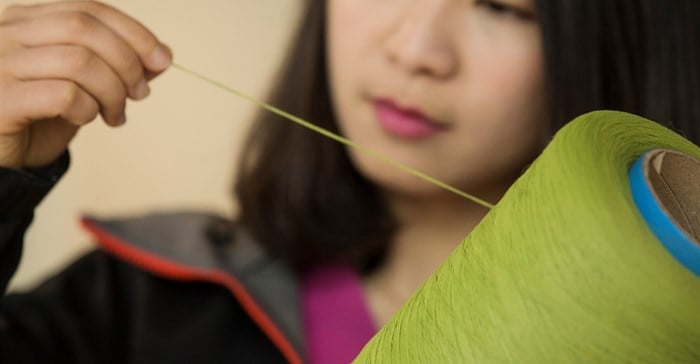Ford evaluates viability of bamboo in vehicle interiors
The team has found that bamboo performs comprehensively better than other tested synthetic and natural fibres in a range of materials tests, from tensile strength tests to impact strength tests. It's also been heated to more than 212 degrees Fahrenheit to ensure it can maintain its integrity.

“Bamboo is amazing,” says Janet Yin, a materials engineering supervisor at Ford’s Nanjing Research & Engineering Centre. “It’s strong, flexible, totally renewable, and plentiful in China and many other parts of Asia.”
The benefits of bamboo have been recognised for more than a century. In building, its tensile strength (or how much it can resist being pulled apart) is well known, as it can rival or even better some types of metal. And, because it grows to full maturity in just two to five years – compared to up to decades for other trees – bamboo also regenerates easily.
The sustainable journey
While tests on bamboo continue, Ford is already making use of sustainable and recycled materials. The company recently announced it is working with Jose Cuervo to explore the use of the tequila producer’s agave plant byproduct to develop more sustainable bioplastics to employ in Ford vehicles.

Ford reportedly uses several sustainable materials including:
- Kenaf, a tropical plant in the cotton family, is used in the door bolsters of Ford Escape
- REPREVE fabric, made from recycled plastic bottles, diverts more than 5 million plastic bottles from landfill annually. Ford most recently introduced REPREVE in F-150
- Post-consumer cotton from denim and T-shirts is used as interior padding and sound insulation in most Ford vehicles
- EcoLon post-consumer nylon carpeting is used as cylinder head covers in Ford Escape, Fusion, Mustang and F-150
- Recycled plastic bottles are becoming floor carpeting, wheel liners and shields in several vehicles including Ford Transit and C-MAX
- Recycled post-consumer tires are used in seals and gaskets
- Rice hulls are used to reinforce plastic in Ford F-150 electrical harness
- Soy-based foams are used as seat cushions, seatbacks and head restraints in Ford’s North American vehicle lineup
- Wheat straw is used in Ford Flex to reinforce storage bins
- Cellulose tree fibers are used in the armrest of Lincoln MKX. Used to replace glass-filled plastic, this industry-first material weighs 10 percent less, is produced 30% faster, and reduces carbon emissions




